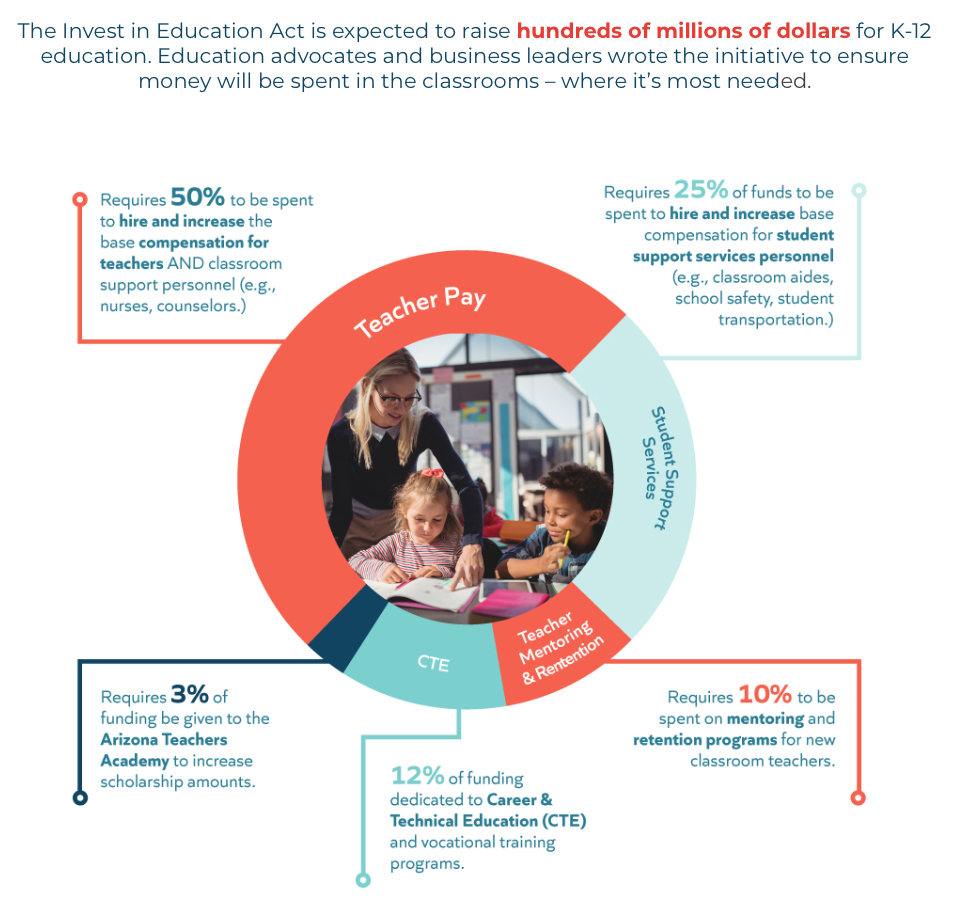Supreme Court strikes down Invest in Education Act
Last week, Maricopa County Superior Court Judge John Hannah was forced to rule in accordance with a confusing, heavy-handed opinion issued last year by the Arizona Supreme Court. Judge Hannah explained that the Supreme Court forced him to permanently strike down the Invest in Education Act, passed by 1.7 million Arizona voters in 2020.
Even though the Invest in Education Act had specific language exempting the new funds from the school spending limit, the Supreme Court rejected that language and ruled that if any of the newly raised funds could not be used by schools because the spending limit had been exceeded, then the entire Act would be struck down. They further ruled the entire Act would be struck down even though schools would not receive their first deposit of Invest in Education Act funding until next school year and there is no way to determine for several more months whether schools will exceed the spending limit next year; even though, as we experienced this year, the legislature could vote to lift the spending limit on a yearly basis.
Judge Hannah identified real issues in the case which would have upheld the voter-approved education funding law, but the Supreme Court’s heavy-handed decision left him no room to uphold the law. The Invest in Education Coalition will be looking into appealing the decision. Indeed, Judge Hannah noted that the Coalition would be free to argue to the Arizona Supreme Court that it should reconsider its ruling, which injected the Court into “a muddle of law and politics.”
With Arizona still at the bottom in the nation for funding public education, Children’s Action Alliance and the Arizona Center for Economic Progress remain committed to getting Arizona’s public schools the resources they need because it is so vital to building a strong future workforce and economy. And Arizona’s students deserve no less.
To learn more about the Invest in Arizona Coalition and how you can help, visit investinaznow.com.




